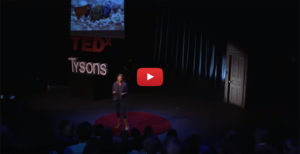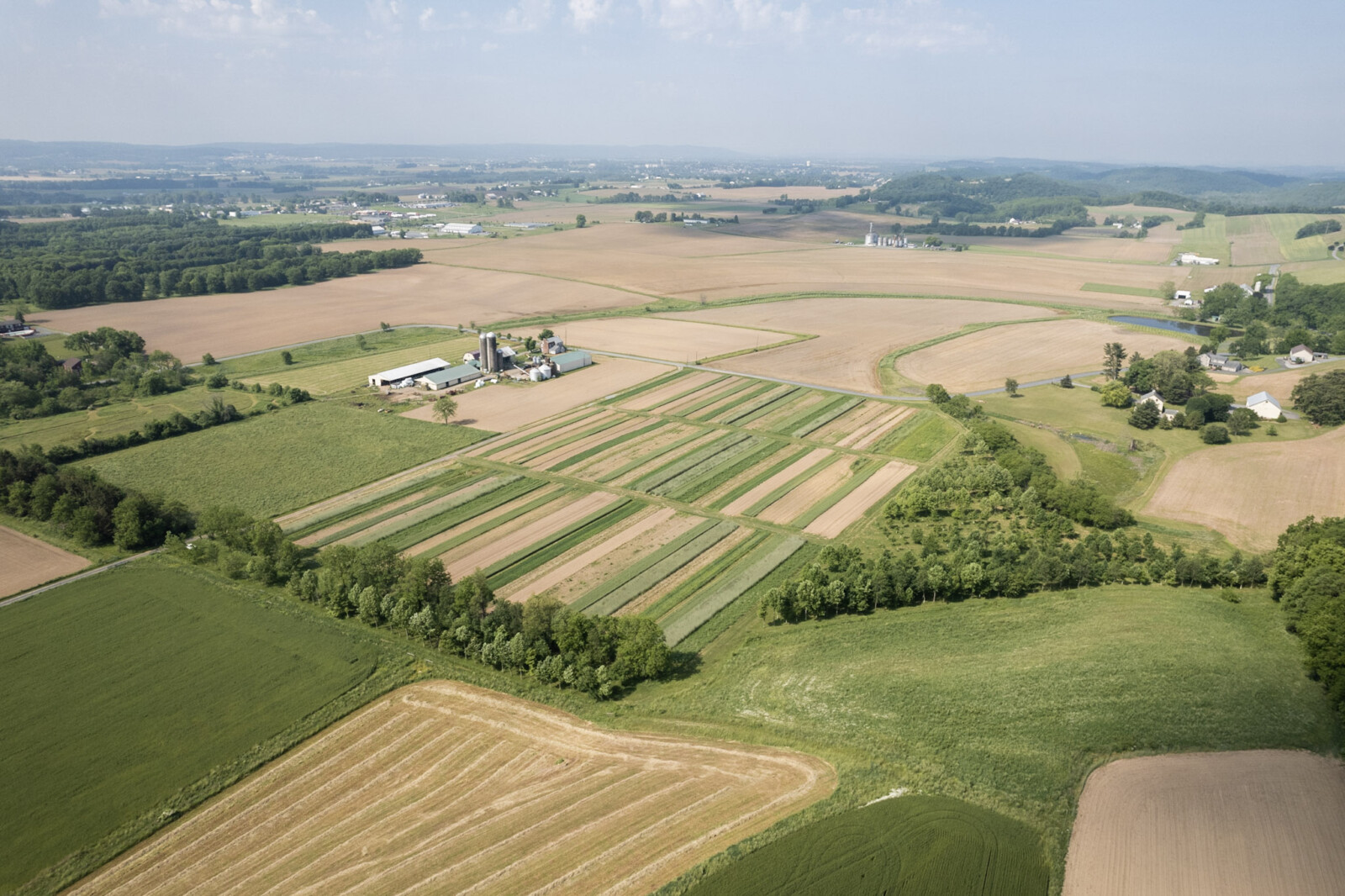by Arash Ghale, PhD; Stacy Kimmel, PhD; Andrew Smith, PhD Jan 23, 2026 A Rodale…

THE MAKING OF A STANDARD
What does it take, exactly, to change the world?
For us at the Regenerative Organic Alliance, it takes conversation. Sometimes long, difficult conversation. And we’re okay with that.
Last month, our Board of Directors gathered to ask, “How can we improve on the first iteration of Regenerative Organic Certified?” Over two full days, we took a deep dive into many of the pilot learnings. For quick review: Over the last year, we tested the first version of the Regenerative Organic Certified framework on the ground with nearly 20 farms and brands in seven countries. We wanted to hear from real farmers, auditors, and certifiers what they thought of our criteria and what we could improve.
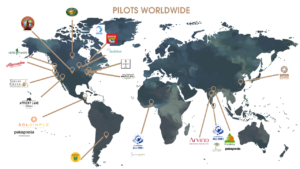
ROC is intended to be aspirational, setting the highest bar for farming practices around the world, but it also needs to be achievable. That’s why we’re committed to continually reviewing and updating the standard—not only to reflect the best regenerative organic practices as they emerge, but to provide a clear and practical resource for farmers and certifiers.
Our Board members, task forces, advisory councils and many other stakeholders are now in the process of digesting the constructive feedback and clarifying questions we received. Certain criteria points need to be modified, clarified, eliminated completely, or perhaps didn’t even exist yet.
The birth of a new standard that promises to elevate farming around the world is exciting! Behind the excitement, however, is hours and hours of careful deliberation, lively debate, and hundreds of nuanced questions and concerns. We want this standard to have utmost integrity, so we’re taking the time to consider it all.
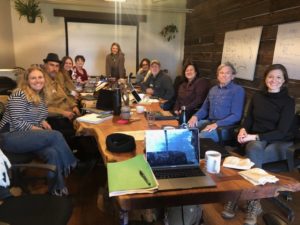
Regenerative Organic Alliance (ROA) Board of Directors and staff. From left: Kendall Miller (ROA), David Bronner (Dr. Bronner’s), Zoe Schaeffer (ROA), LaRhea Pepper (Textile Exchange), Elizabeth Whitlow (ROA), Dana Geffner (Fair World Project), Jeff Moyer (Rodale Institute), Rose Marcario (Patagonia), Paul Dolan (Dark Horse Farming Co.), and Rachel Dreskin (Compassion in World Farming)
This is the ROA’s amazing Board of Directors, minus Will Harris (White Oak Pastures) and Alfred Grand (Grand Farm). I am humbled every day in service to these people, our community and this vision for our collective future.
It was obvious that everyone in the room was aligned in our collective goal to create a truly transformative agricultural standard. It became clear that we all desire and support the same things: Above all, we value the health of our incredible, interconnected planet and all who call it home—those above and below ground. To ensure a healthy planet, abundant and nutritious food, and thriving people long into the future, we believe in continuously improving the way we do everything, including how we farm. And in order to continuously improve, we need all of you—innovative farmers, researchers, educators, policymakers, businesses, and individuals—to join us. None of us can do this alone.
The problems of climate change, factory farming, and food insecurity are complex beyond belief. We believe we can address them all with regenerative organic agriculture, and such a solution is necessarily complex, too.
It won’t be easy, but we’re not interested in easy. We’re interested in doing it right.
Until next time,

Elizabeth Whitlow
Executive Director, Regenerative Organic Alliance
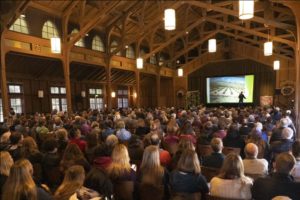
FIRST ROC PRODUCTS UNVEILED AT ECOFARM 2020
Each year, the EcoFarm conference in Asimolar, California brings together a huge audience of farmers, food activists, educators, science and medical professionals, ag enthusiasts and more to discuss the future of farming and food.
We loved the opportunity to connect with so many of you one-on-one at our booth and especially at our happy hour event. We raffled off some great Patagonia prizes, drank some delicious organic beer, and enjoyed Regenerative Organic Certified popcorn and coconut oil.
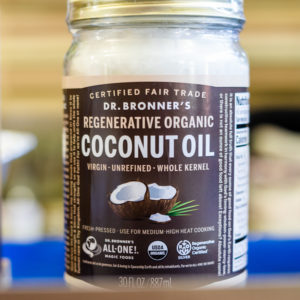
Yes, you heard that right! Two products from our Pilot Program—Grain Place Foods’ popcorn and Dr. Bronner’s coconut oil—officially earned certification after their farm audits, and that means the first ROC products are out in the world. And they’re delicious.
We’ve had such an outpouring of interest in people looking for ROC products. Stay tuned! In the meantime, we can’t thank you enough for your support through these early stages of the Regenerative Organic Certification. ROC will be the highest standard for agriculture around the world precisely because we’ve taken the time to have the hard conversations and honor the complexity of the issues.
Want to help us build the movement?
- Become an ally with a financial contribution. Email kendall@regenorgstage.wpenginepowered.com to pledge your support.
- Spread the word. Right now, RO farming is bubbling in the collective conscience. Be a part of the conversation. Ask your friends if they’ve heard of regenerative organic. Share our Instagram posts. Talk to the chef at your local restaurant, the farmer at your local market, or the parents at your kid’s school. Let’s collaborate and get loud.
- Donate. Your dollars will help us do the necessary heavy lifting to get this certification off the ground. Thank you for your vital contribution!
- If your company purchases foodstuffs, please take a few minutes to help our friends at HowGood by completing their survey of the current demand for regenerative organic crops.
BETTER HEALTH IS UNDERNEATH YOUR FEET: A TEDx TALK
What if the solution to our health, food and climate crises were in the soil living right under our feet? And what if dung beetles were actually superheroes in disguise? In this talk, the Regenerative Organic Alliance’s Executive Director Elizabeth Whitlow explains how RO farming can improve the health of the planet and all its living inhabitants—and do a whole lot more good on the way. Share this with someone new to the RO movement!
ROC IN THE NEWS
- Can Vegans And Ranchers Work Together To Rebuild The World’s Soil? Forbes
- How the Regenerative Organic Certification is raising the bar for agricultural practices (Interview with Elizabeth Whitlow of the Regenerative Organic Alliance), Green Dreamer
- Regenerative Organic Alliance: Farming Like Our World Depends On It, 1% For the Planet
- What the Food Industry Can Teach Fashion About Sustainability, Vogue Business
- Beyond Organic: The Winemakers Leading a Sustainable Revolution, Wine Enthusiast
The Regenerative Organic Alliance exists to heal a broken food system, repair a damaged planet, and empower farmers and eaters to create a better future through better farming.
At current rates of topsoil loss, we have fewer than
60 harvests left. This crisis can’t wait.
Will you join us in revolutionizing the future of food and fiber?
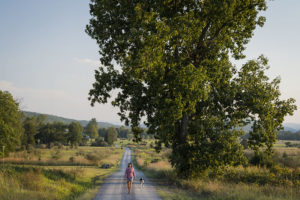
MEET THE ROA: ZOE SCHAEFFER, COMMUNICATIONS
“I grew up in the nation’s capital and spent six years in the concrete understory of New York City, so it surprises even me that my favorite place on earth is the middle of a farm field, covered in sweat and dirt.
My aunt and uncle left suburbia for a homestead in West Virginia ten years ago. That’s where I got hooked on farming, a totally different way of life than the path I’d been prescribed. When I was laid off a magazine job in 2017, I decided to hit the road and volunteer with WWOOF. I worked on at least a dozen farms in a dozen states as I crisscrossed the country on a yearlong trip. I learned from no-till farmers in Tennessee, dairymen in Colorado, bison ranchers in Montana, blueberry growers in Oregon, and homesteaders in California.
Back at home in Pennsylvania, when I’m not at my desk with the Regenerative Organic Alliance, I now work part-time on a pastured hog and chicken farm growing cut flowers. My best friend runs a vegetable CSA down the road. My aunt and uncle are still holding it down in West Virginia, where the grandkids help collect eggs to sell at my cousin’s nose-to-tail butcher shop and cafe in town. My nightside table is stacked with books about soil health, and every penny we save is a penny towards the down payment on a small farm of our own. Farmers are my friends and my family, and farming has become my whole life.
My professional experience is in communications—think social media, photography, websites, PR. I worked for the food magazine SAVEUR until the farming bug bit me bad, and since then I’ve helped a range of businesses like Rodale Institute and the ROA connect with the people who support them. I love telling stories, and I love amplifying the voices of farmers doing important work. Got a great story to tell about regenerative organic farming or the regenerative organic movement? Reach out. If you message us on Instagram @regenerativeorganic, you’ll get a reply straight from me.”
—Zoe
